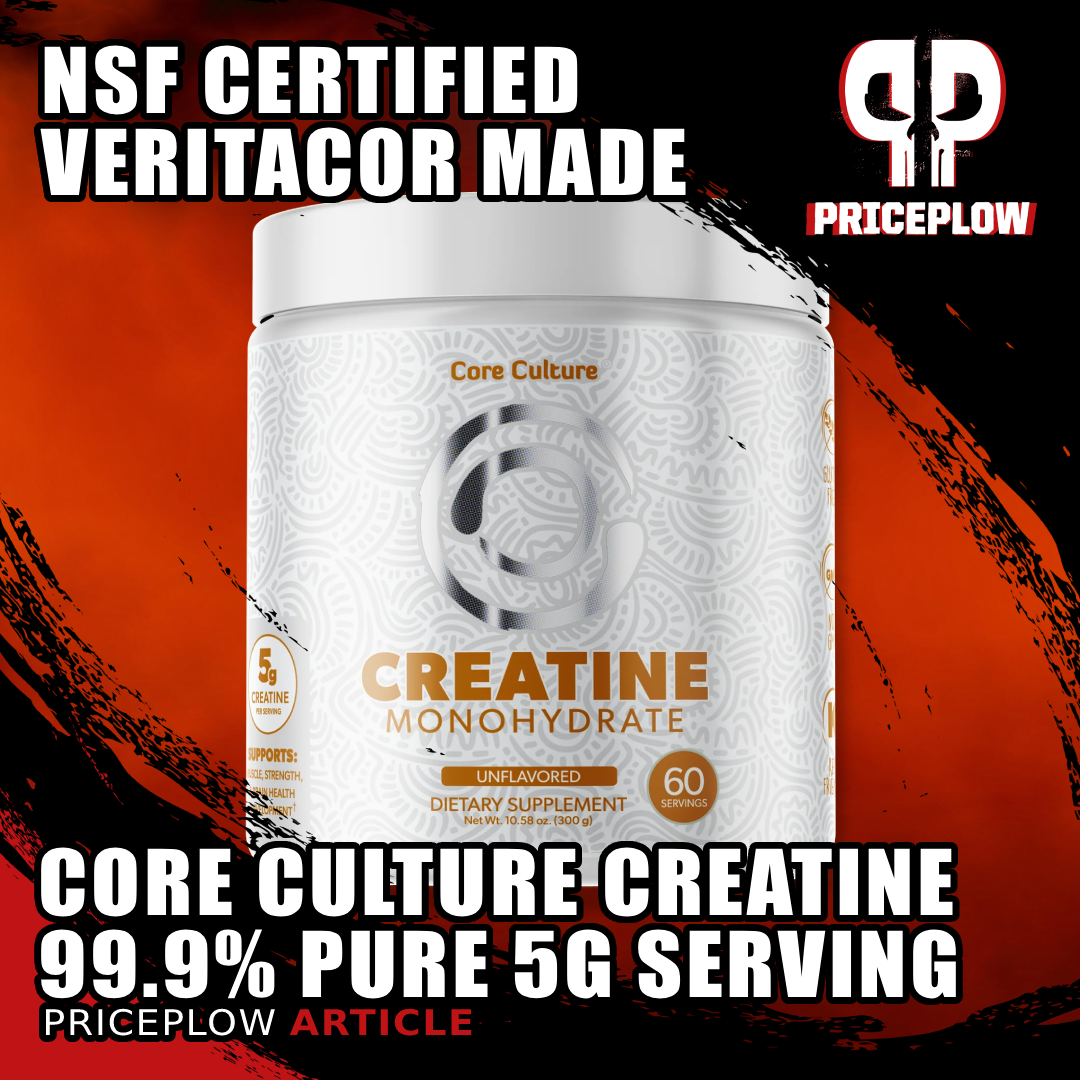
Core Culture Creatine Monohydrate delivers 5g of pure creatine per serving, manufactured at NSF-certified Veritacor in Texas. No fillers, no fluff--just research-backed support for muscle, cognition, and cellular energy. 60 servings of transparency.
Creatine monohydrate is the most researched supplement in sports nutrition, but not all creatine is created equal. Core Culture's approach combines the gold standard ingredient with manufacturing standards that set a new benchmark for quality and transparency.
Manufactured at Veritacor -- the NSF-certified, GMP-compliant facility in Luling, Texas that was featured in Episode #178 of the PricePlow Podcast -- this creatine delivers 5 grams of pure creatine monohydrate per serving with nothing but silica as a flow agent. No other fillers, no proprietary blends, no wasteful additives.
The formula is unflavored and mixes easily into pre-workouts, smoothies, protein shakes, or yogurt without affecting taste. At 60 servings per container, it provides two months of daily supplementation for muscle maintenance, cognitive support, and cellular energy production. Core Culture's commitment to transparency extends beyond the label: you know exactly where it's made, who makes it, and what's inside.
This article recaps the benefits of creatine monohydrate, talks about Veritacor's promise of quality, and reminds you to know where your creatine supplement is bottled. Check the prices on PricePlow, then let's dig into the reasons everyone should take creatine:
Core Culture Creatine Monohydrate – Deals and Price Drop Alerts
Get Price Alerts
No spam, no scams.
Disclosure: PricePlow relies on pricing from stores with which we have a business relationship. We work hard to keep pricing current, but you may find a better offer.
Posts are sponsored in part by the retailers and/or brands listed on this page.
This area is reserved for Team PricePlow's upcoming videos.
Subscribe to our channel and sign up for notifications so you catch it when it goes live!
Just one main ingredient inside:
About the Creatine in Core Culture Creatine Monohydrate
In a supplement market crowded with derivative formulas and proprietary blends, creatine monohydrate stands alone. No other ingredient in sports nutrition can claim over 30 years of clinical research, consistent performance benefits across nearly every measure of human function, and a safety profile rivaling that of common foods. The question isn't whether creatine works. The question is whether the source you're using delivers what the research actually studied.
The Phosphocreatine Energy System: How Creatine Powers Performance
Creatine's value emerges from understanding cellular energy metabolism. When muscles contract, they break down adenosine triphosphate (ATP) into adenosine diphosphate (ADP) and inorganic phosphate, releasing energy for movement. The body stores only enough ATP for approximately 2-3 seconds of maximum effort, yet high-intensity activities like sprinting, lifting, or explosive movements demand sustained power output.[1]
This is where phosphocreatine becomes critical. Creatine binds with inorganic phosphate in muscle cells to form phosphocreatine (PCr), creating a high-energy reservoir that rapidly regenerates ATP.[2] The creatine kinase/phosphocreatine (CK/PCr) system acts as an energy shuttle, connecting sites of ATP production in the mitochondria with the cellular locations where energy gets consumed. During exercise, phosphocreatine donates its phosphate group back to ADP, instantly regenerating ATP without requiring oxygen.[1]
Dietary creatine intake from typical omnivorous diets provides 1-2 g/day, which saturates muscle creatine stores at only 60-80% of maximum capacity.[2] Supplementation with 5 g/day increases muscle creatine and phosphocreatine stores by 20-40%, substantially expanding the total energy available for high-intensity work.[1] This increase in readily available energy translates directly into measurable performance improvements.
Performance Benefits: Strength, Power, and Adaptations
The performance literature on creatine monohydrate is extensive. For instance, a systematic review and meta-analysis of creatine supplementation in soccer players found significant benefits for anaerobic performance tests, with effect sizes reaching 1.23 for anaerobic power.[3] Similar improvements appear across strength sports, with studies consistently showing enhanced repetitions to failure, increased training volume, and superior gains in one-repetition maximum lifts when creatine supplementation accompanies resistance training.[2]
The mechanism extends beyond immediate energy availability. Creatine supplementation influences muscle protein synthesis pathways, with research showing decreased myostatin levels and increased expression of myogenic regulatory factors.[4] These molecular changes support increased muscle fiber size and accelerated recovery between training sessions, allowing for greater total training stimulus over time.
Research spanning multiple decades confirms creatine's effectiveness across sports requiring repeated high-intensity efforts: swimming sprints, volleyball jumps, ice hockey shifts, and golf drives all show measurable improvements with supplementation.[2] The consistency of these findings across different populations, protocols, and performance measures reinforces creatine's position as the most reliably effective ergogenic aid available.
Beyond Muscle: Cognitive and Neurological Benefits
Despite representing only 2% of body mass, the brain accounts for approximately 20% of the body's energy expenditure. Like skeletal muscle, neural tissue depends on ATP for neurotransmitter release, maintaining ion gradients, and supporting synaptic function.[5] Approximately 95% of the body's creatine resides in skeletal muscle, but the remaining 5% found in the brain, heart, and other tissues plays equally vital roles.[2]
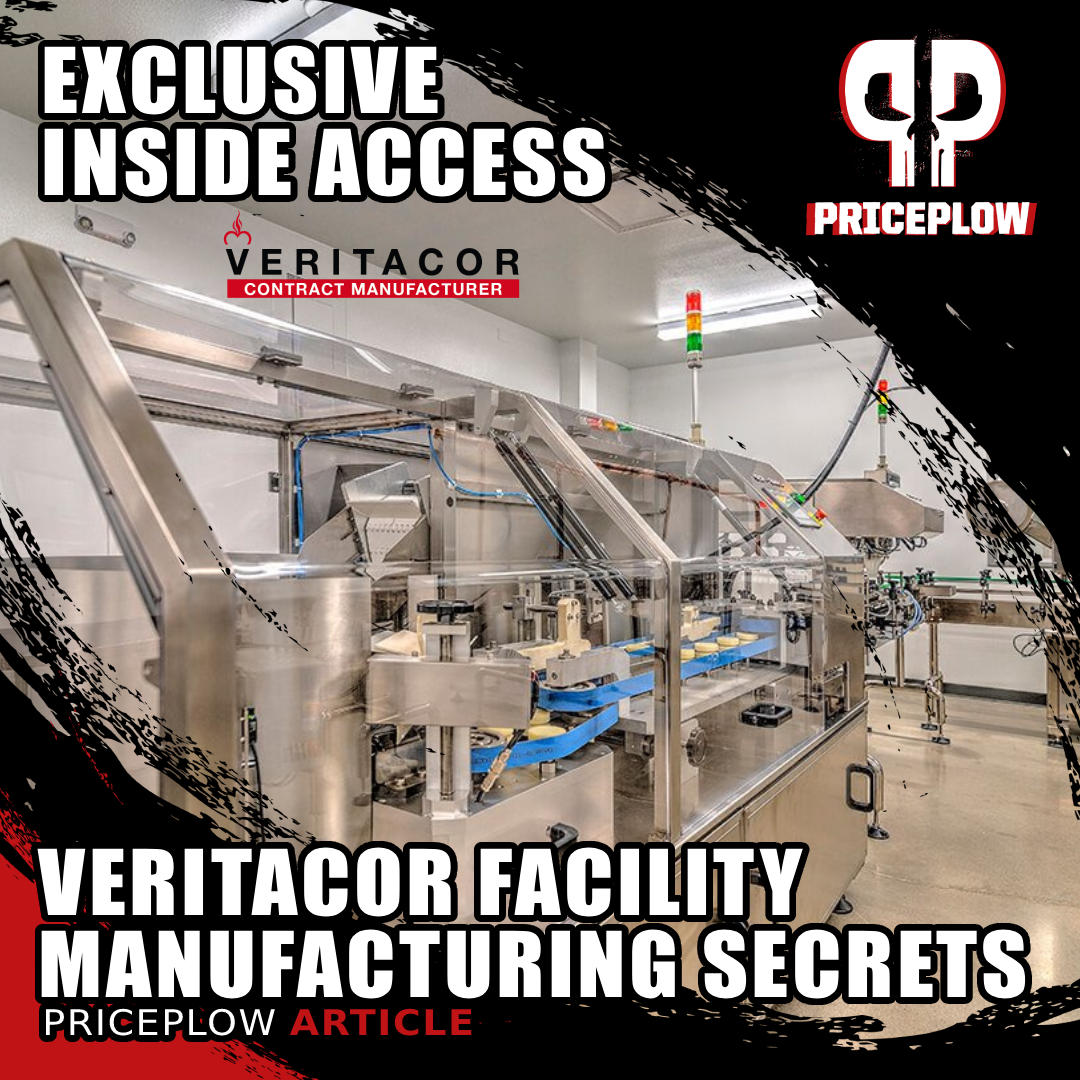
Ever wondered how supplements are made? We got exclusive access to Veritacor Manufacturing -- 210,000 capsules per hour, complex ingredient sourcing, and way more science than you'd expect.
Systematic reviews examining cognitive effects in healthy individuals show benefits for short-term memory and intelligence/reasoning tasks, with effects most pronounced in vegetarians (who have lower baseline brain creatine levels) and individuals under metabolic stress.[6] The creatine/phosphocreatine system in the brain mirrors its function in muscle, providing rapid ATP regeneration to support demanding cognitive processes.
The neuroprotective properties extend beyond energy metabolism. Creatine supplementation reduces reactive oxygen species formation through improved mitochondrial coupling, offering direct and indirect antioxidant effects.[1] This combination of enhanced bioenergetics and cellular protection suggests broader applications for brain health across the lifespan, though more research in clinical populations is warranted.
Dosing Protocols: Loading and Maintenance
The most extensively studied supplementation protocol involves a loading phase of 5g four times daily (20 g/day total) for 5-7 days, followed by a maintenance dose of 3-5g/day.[1] This approach saturates muscle creatine stores within one week. Alternatively, 3 g/day for 28 days achieves similar saturation but with a more gradual increase.[1]
Research indicates co-ingesting creatine with carbohydrates or carbohydrate-protein combinations enhances creatine retention, though this is not essential for achieving benefits.[2] Once muscle creatine stores reach saturation, they remain elevated for 4-6 weeks after supplementation ceases, allowing for cycling strategies if desired.[1]
Core Culture's 5-gram servings align with the research-validated maintenance dose, providing consistent daily support for both performance and cognitive function without requiring loading phases for those willing to build stores gradually.
Quality Matters: Purity and Manufacturing Standards
Not all creatine monohydrate is manufactured equally. The synthesis process involves combining sarcosinate with cyanamide in an aqueous solution, followed by crystallization, filtration, and drying.[2] Manufacturing quality hinges on the chemical precursors used, process controls during synthesis, and filtration methods employed.
High-purity creatine monohydrate manufactured using water as a solvent achieves 99.9% purity with no detectable contaminants. Lower-quality sources, often produced with different chemical precursors and inadequate filtration, have been found to contain concerning levels of dicyandiamide (up to 5.4%), dihydrotriazine (0.09%), elevated creatinine (1.3%), and higher concentrations of heavy metals including mercury and lead.[7] Dihydrotriazine is structurally related to carcinogenic compounds, making its presence in supplements unacceptable.
When selecting a creatine supplement, manufacturing location and quality control procedures directly impact what actually ends up in your body.
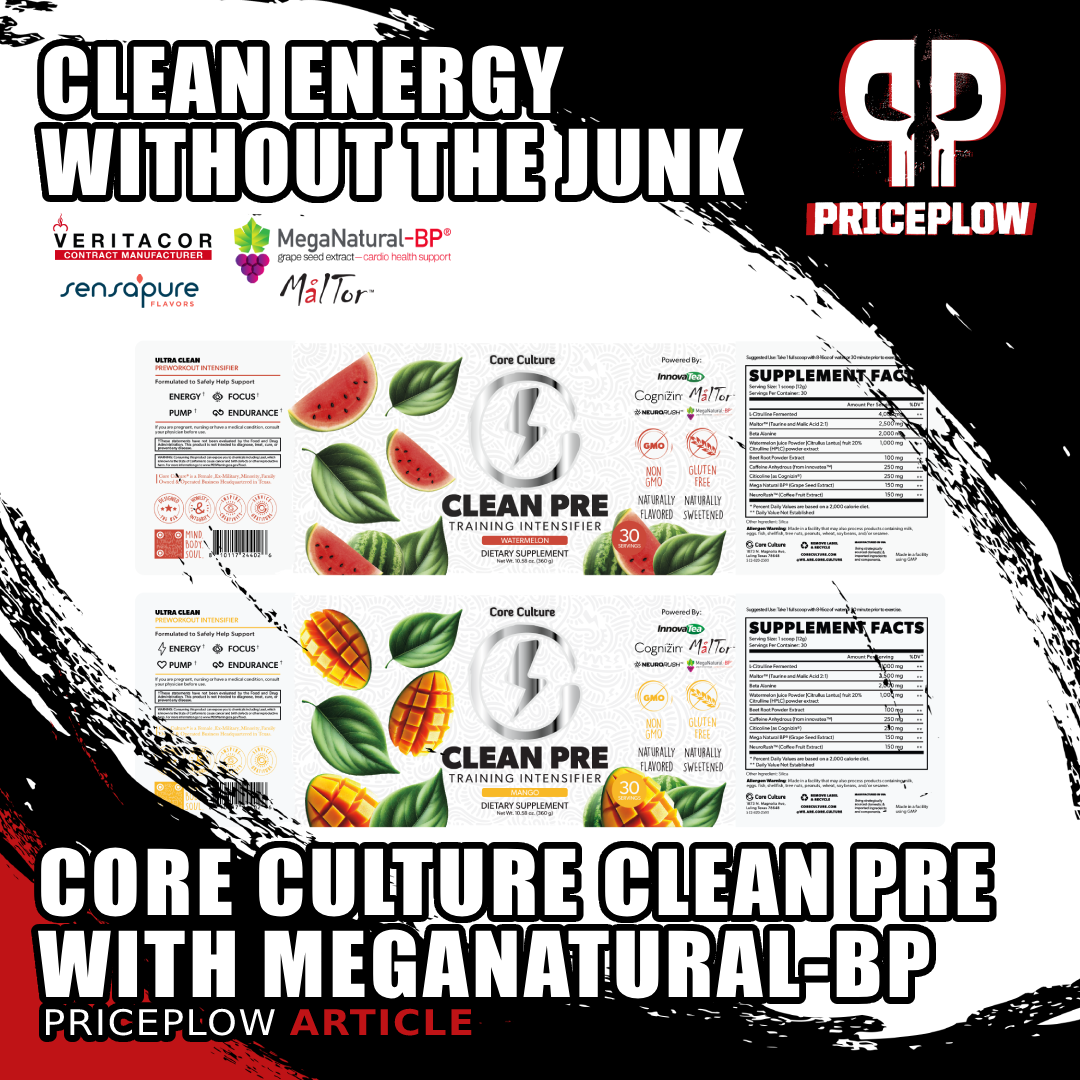
Core Culture Clean Pre is a natural pre-workout with 4g fermented citrulline, MalTor taurine-malic acid complex, MegaNatural-BP grape seed extract, and plant-based caffeine. No artificial colors, flavors, or sweeteners. Performance meets clean label standards.
Veritacor, the NSF-certified facility manufacturing Core Culture Creatine, is well-known in the industry for rigorous purity testing and quality assurance. This attention to manufacturing detail ensures consumers receive creatine monohydrate matching the specifications used in the extensive research documenting its benefits, rather than a contaminated alternative that saves production costs at the expense of consumer safety.
Stacking with Core Culture Clean Pre
Core Culture Creatine pairs perfectly with the forthcoming Core Culture Clean Pre for comprehensive performance support. While Clean Pre delivers 4.2 grams of citrulline for nitric oxide production, plant-based caffeine for energy, and Cognizin for focus, creatine works through a different pathway: supporting ATP regeneration and cellular energy at the muscular and neurological level.
The combination creates synergistic benefits: Clean Pre enhances blood flow and oxygen delivery while creatine ensures muscles can efficiently use that oxygen for sustained power output. Both manufactured at the same Veritacor facility, both committed to clean ingredients, and both designed to work together.
For optimal results, take creatine daily (timing flexibility allows for morning coffee or post-workout shakes) while using Clean Pre 20-30 minutes before training. This simple stack covers energy production, blood flow, focus, and recovery without artificial ingredients or unnecessary complexity.
Conclusion: Pure Creatine from a Trusted Source (Veritacor)
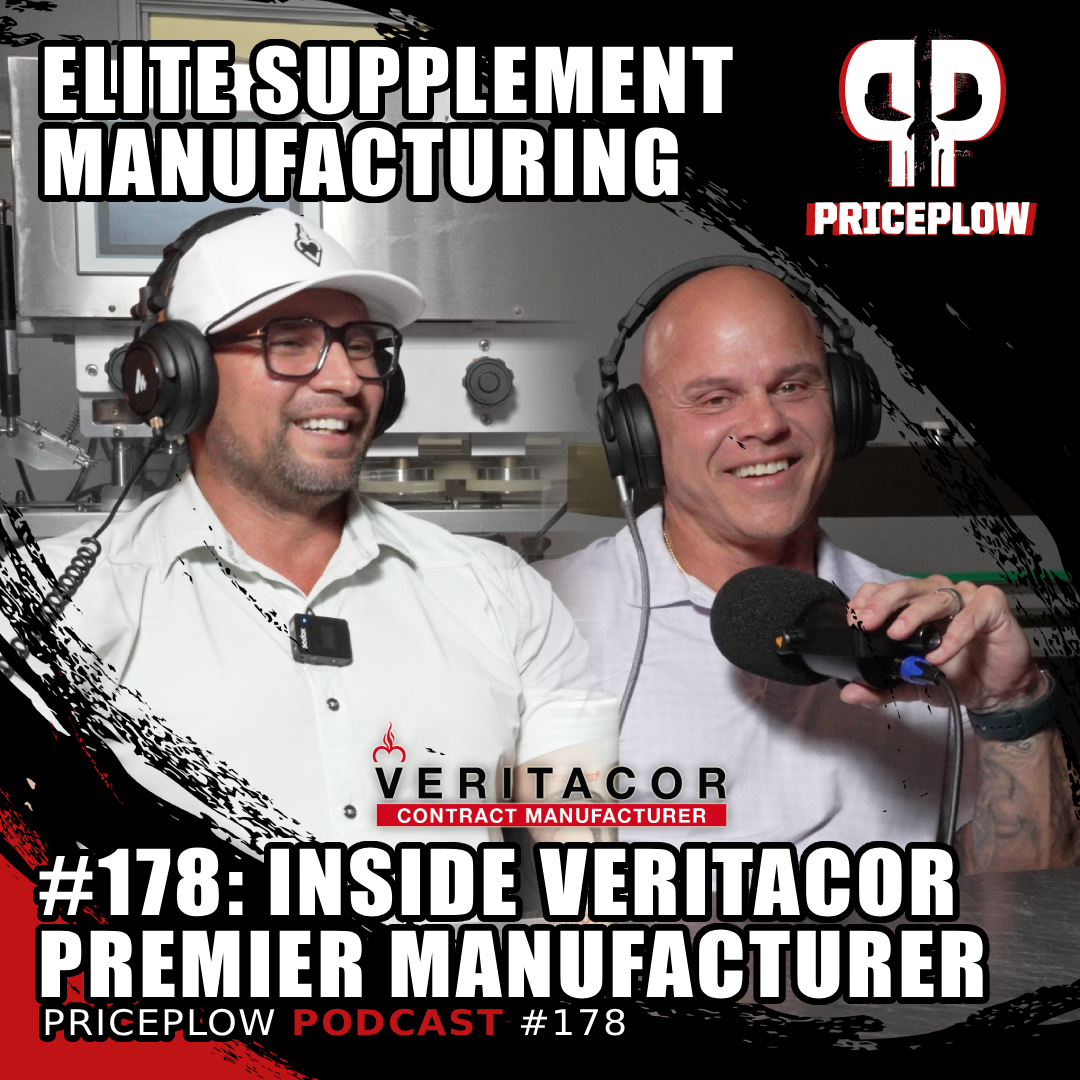
Inside Veritacor Manufacturing: Frank Santos and Derek Curtiss showcase their NSF-certified, GMP-compliant facility and discuss the meticulous processes behind modern supplement manufacturing on Episode #178 of the PricePlow Podcast.
Core Culture Creatine proves that simplicity and quality don't have to be mutually exclusive. Five grams of creatine monohydrate, manufactured in an NSF-certified facility with complete transparency about processes and sourcing. That's the formula.
The unflavored format provides ultimate versatility, mixing into any beverage without altering taste. Whether you're adding it to morning coffee, blending it into post-workout shakes, or stirring it into yogurt, daily creatine supplementation becomes effortless. And with 60 servings per container, you're covered for two full months of consistent use.
Knowing exactly where your supplements are made matters. Veritacor's commitment to quality control, documented in our Veritacor facility tour article and podcast episode with Frank Santos and Derek Curtiss, ensures every batch meets pharmaceutical-grade standards. When a female, ex-military, minority, family-owned business manufactures your creatine with the same attention to detail they apply to complex multi-ingredient formulas, you get more than just a product... you get peace of mind.
Core Culture Creatine Monohydrate – Deals and Price Drop Alerts
Get Price Alerts
No spam, no scams.
Disclosure: PricePlow relies on pricing from stores with which we have a business relationship. We work hard to keep pricing current, but you may find a better offer.
Posts are sponsored in part by the retailers and/or brands listed on this page.
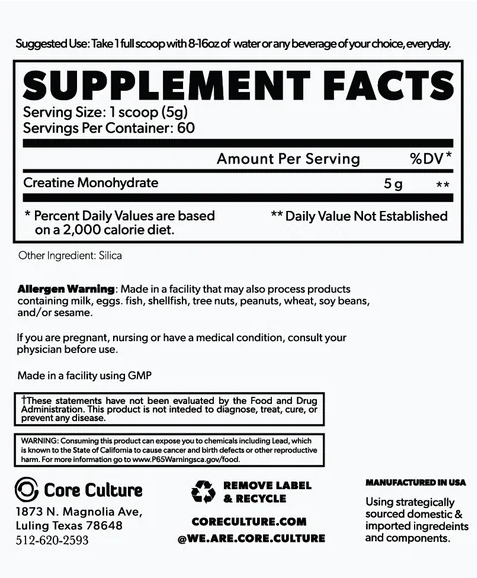
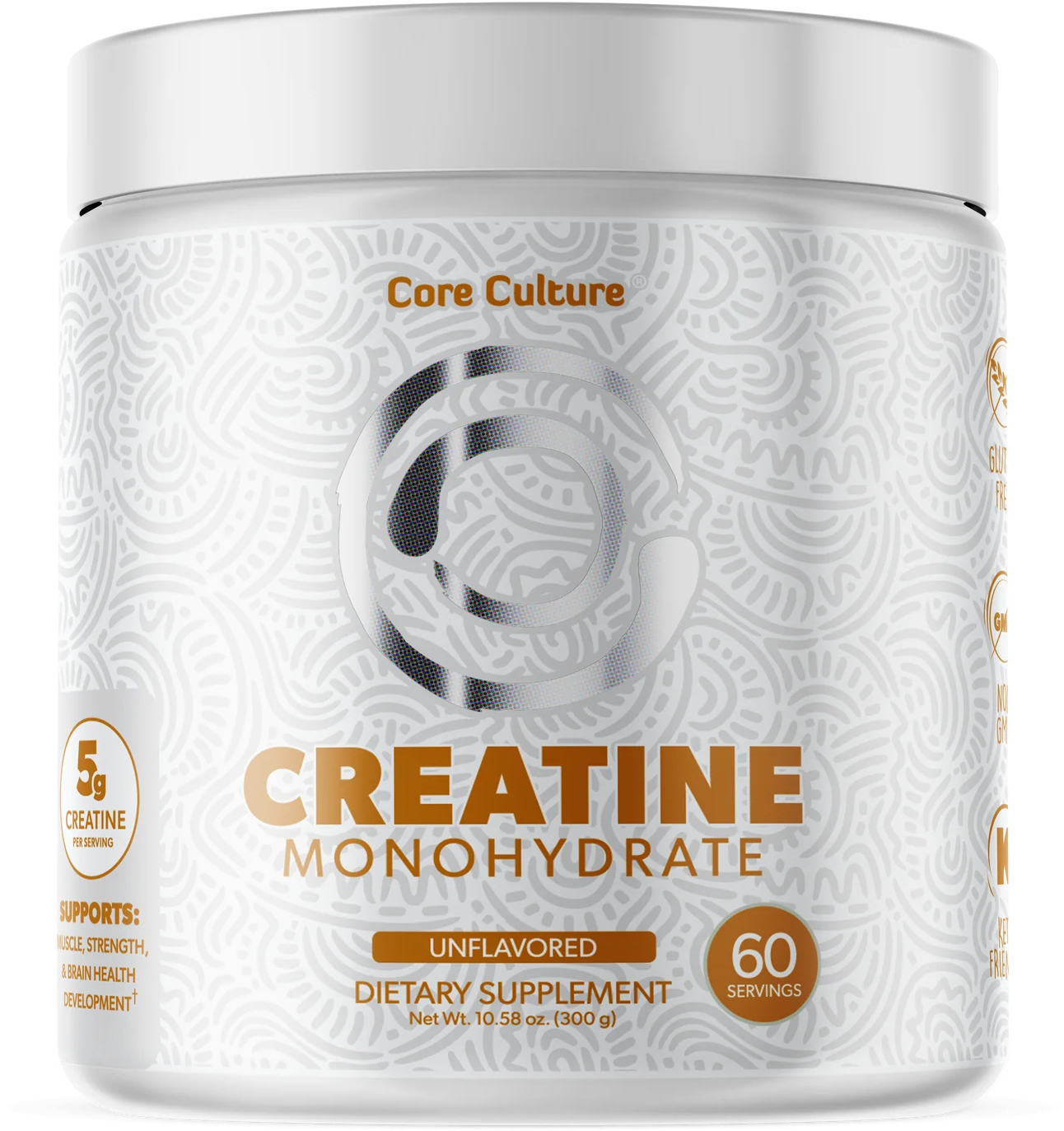
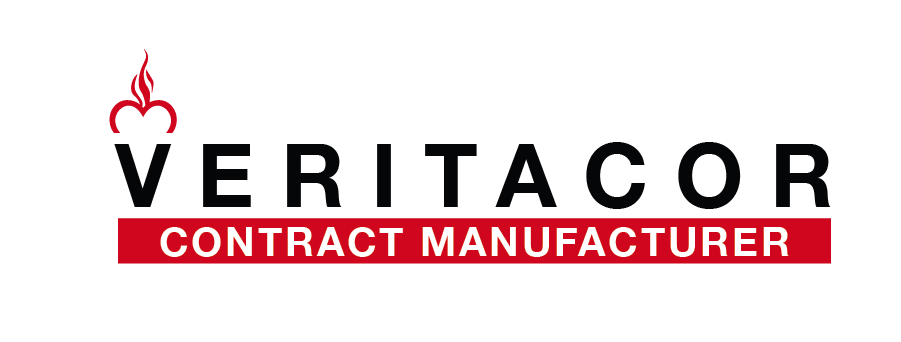



Comments and Discussion (Powered by the PricePlow Forum)